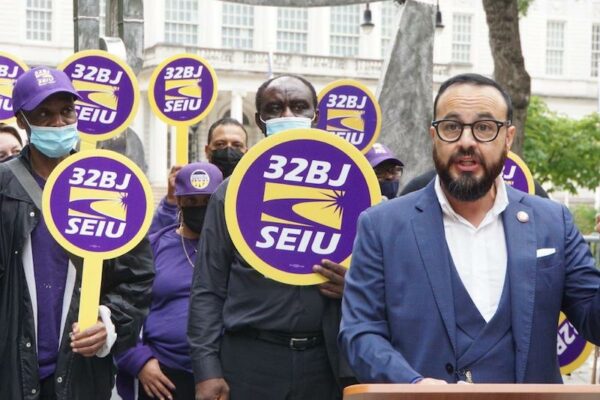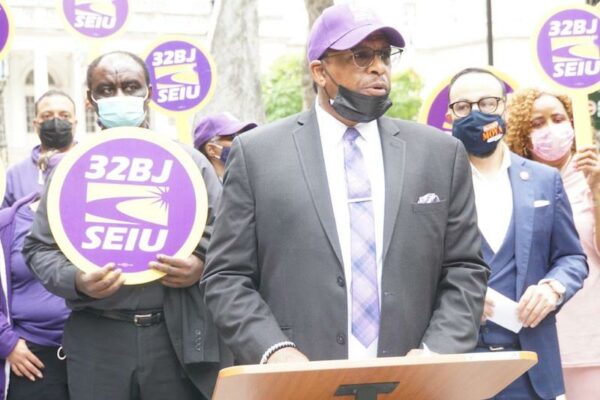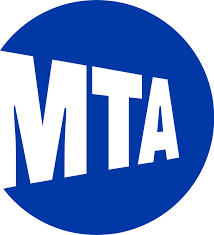
The city committed $40.5 million in the FY22 Budget to raise wages for security officers at private, non-profit shelters contracted by the city earlier this year — the SOS Act codifies the prevailing wage rate requirement for these workers in city law.
City Council Members Francisco Moya and Diana Ayala sponsored the legislation to address the working conditions in these private shelters.
“While serving homeless New Yorkers, these frontline essential workers are struggling to afford a living, and many have found themselves homeless,” 32BJ SEIU President Kyle Bragg told workers. “Hopefully, that daily reality of struggle for these workers changes after a vote on the SOS Act. Thanks to City Council Speaker Corey Johnson and SOS Act sponsors City Council Members Francisco Moya and Diana Ayala, for standing with these workers and fighting to make sure they get the wages, benefits, and training they deserve.”
According to a survey of 120 security officers conducted by 32BJ SEIU, private shelter security officers are uninsured, poorly paid and experiencing homelessness at a rate four times higher than the New York City average. The SOS Act aims to ensure family-sustaining wages, benefits and training for the 4,000 staff providing safety for shelter clients across the city.

“On days like this, we stand on the precipice of change for an entire industry,” said City Council Member Francisco Moya. “These four-thousand plus workers, majority Black, Brown, and immigrant, deserve to earn decent standards so they can provide for their families. With the passing of the bill we are also taking another step forward in correcting the inequities that have ravaged the communities these workers represent. I applaud 32BJ President Kyle Bragg for standing up for workers and thank Speaker Corey Johnson for supporting this legislation.”
Mike Gang, who worked as a security officer at a private non-profit center, said, “After the city decided to contract out the work to a non-profit provider, I lost my healthcare, I lost my benefits, and I am no longer in a union. Gang had worked at the same Bronx shelter for 15 years, but saw it go from city-run to run by a nonprofit. “I joined this fight for the Safety in our Shelters Act because I know what we had and what we lost. It’s been tough for my wife and I to continue to provide for our family.”
Both bills unanimously passed by the members of the New York City Council: Int. 2006-2020, sponsored by Council Member Francisco Moya, ensures that security officers at shelters managed by city-contracted shelter operators receive industry standard wages and benefits. Int. 1995-2020, sponsored by Council Member Diana Ayala, requires guards employed at shelters managed by city-contracted shelter operators to be provided with 40 hours of post-assignment training, matching what is required for guards at City run sites.
“I am a proud sponsor of the SOS Act because I know personally the struggle of going through the shelter system,” Council Member Ayala said. “The difference in wages for these workers means they can experience financial stability and build a home. The SOS Act will also ensure officers are properly trained so they can keep shelter residents, staff, and other officers safe.”
City Council Speaker Corey Johnson also lauded passage of the SOS Act.
“Private shelter workers have been protecting some of our most vulnerable New Yorkers while making as little as $15 an hour and without the affordable, quality health insurance that all essential workers deserve,” he said. “I’m proud that the Council is voting today to raise their wages, and provide them with the health care and critical training they need,”



